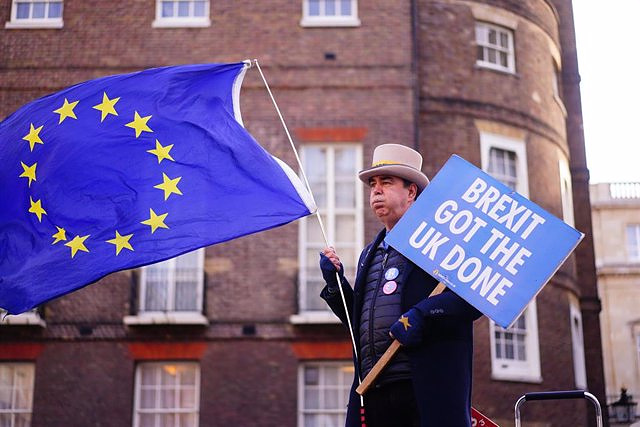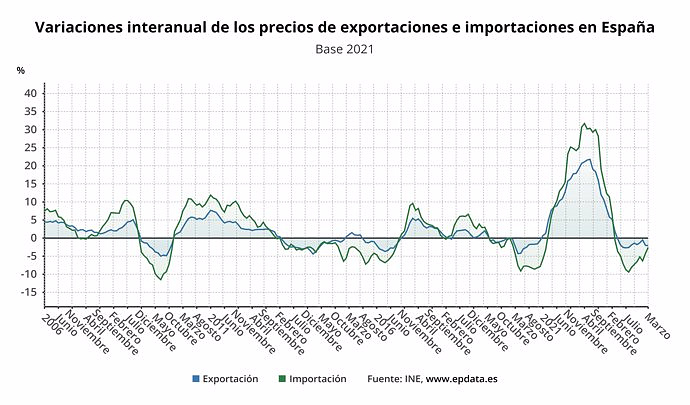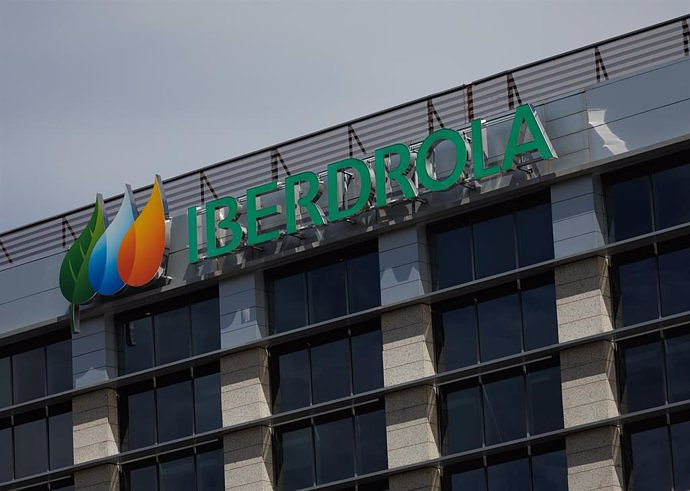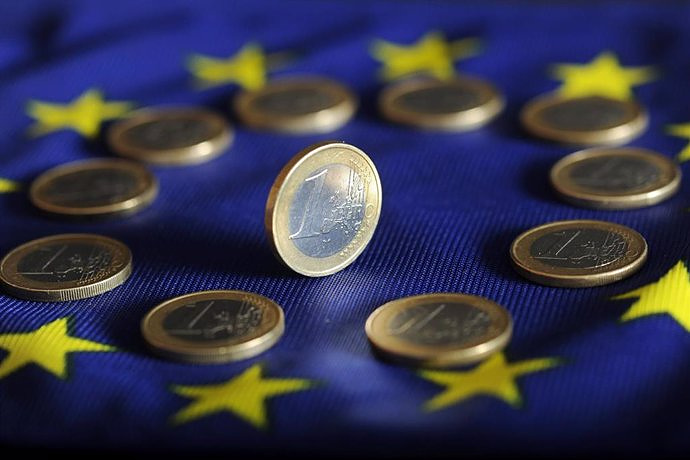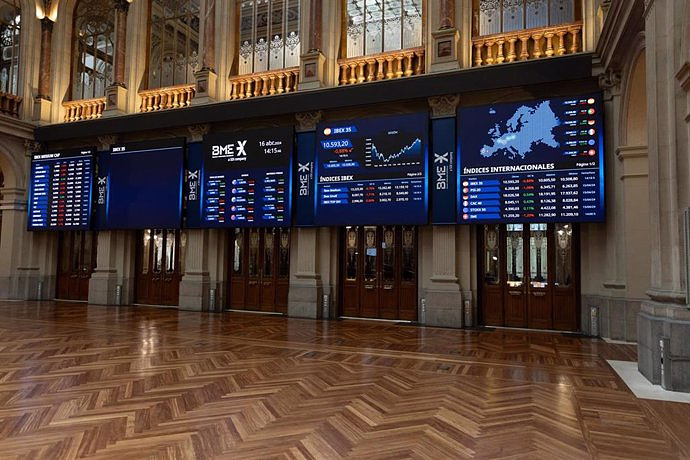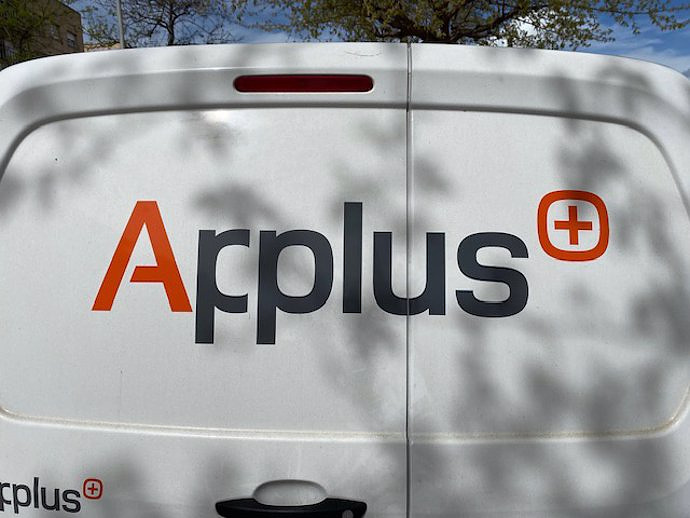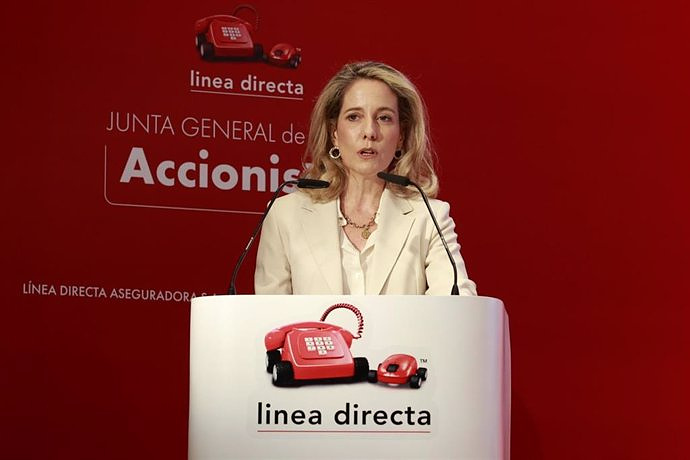Sunak meets in Belfast with the main parties to inform them of the progress in the negotiations
BRUSELAS, 17 Feb. (EUROPA PRESS) -
The European Union and the United Kingdom continue the "intensive work" to reach an agreement that satisfies both parties and allows unblocking the application of the protocol for Northern Ireland that they negotiated as part of Brexit but that London refuses to apply.
"Constructive meeting with Maros Sefcovic in Brussels. We discussed the work in progress and to find a solution," the British Foreign Minister, James Cleverly, wrote on social networks, who traveled to the European capital this Friday to take stock of the vice president of the European Commission responsible for relations with the United Kingdom.
"The intense work continues," stressed the diplomat, with whom the EU chief negotiator is more in tune than with the British envoys of previous governments. British sources consulted by Europa Press stress that "the commitment to find practical solutions" is maintained for both parties.
For his part, Sefcovic evoked the "constructive commitment" and the "good progress" achieved in recent months, while stressing that London and Brussels have a "clear shared objective", which involves common solutions that "respond to the daily concerns of the people of Northern Ireland".
"The hard work continues," the community vice president concluded, in a message released along with several images of the meeting with Cleverly in Brussels, in which both appear smiling.
Once the lunch between Sefcovic and Cleverly had concluded, the community representative met in a restricted format with the ambassadors of the member states in Brussels to inform them of the status of the talks.
Within the framework of the divorce agreements, the European Union and the British Government agreed that after the breakup a series of controls should be carried out and other conditions imposed on the passage of goods from the rest of Great Britain to the Northern Irish province, with the aim that Northern Ireland could remain part of the Single Market without reintroducing a guarded border in Ulster.
The Government of Boris Johnson decided unilaterally to break with the application of the protocol for Northern Ireland, alleging that it seriously harmed its interests, a step that the EU denounced before the Court of Justice of the EU, considering that it is a breach of a Treaty international.
With the replacement at the head of Downing Street, contacts have improved in the tone between the parties and in the progress, even announcing the first points of agreement on elements such as extending the flexibility in the controls of veterinary medicines.
Meanwhile, the British Prime Minister, Rishi Sunak, has traveled to Belfast to personally inform the main Northern Irish parties of the progress in the negotiations with the European Union, "significant" according to the version offered after the meeting by the leader of the republican Sinn Fein, Mary Lou McDonald.
The British media are speculating about an imminent agreement - sources quoted by the BBC point out that it could arrive next week - but the Democratic Unionist Party (DUP), a detractor of the aforementioned protocol, has already warned that it will only abide by an agreement that it considers "correct".
"Clearly, it's a great time," stressed DUP leader Jeffrey Donaldson. He expects all parties to do "everything possible" to resolve outstanding differences and ultimately "to be able to restore the institutions" in Northern Ireland.
Northern Ireland has been without an effective government since elections on May 5, which for the first time put Sinn Féin ahead of the main union party. The consensus between the two to establish a coalition is also key to the validity of the 1998 peace agreements.

 Exploring Cardano: Inner Workings and Advantages of this Cryptocurrency
Exploring Cardano: Inner Workings and Advantages of this Cryptocurrency Seville.- Economy.- Innova.- STSA inaugurates its new painting and sealing hangar in San Pablo, for 18 million
Seville.- Economy.- Innova.- STSA inaugurates its new painting and sealing hangar in San Pablo, for 18 million Innova.- More than 300 volunteers join the Andalucía Compromiso Digital network in one month to facilitate access to ICT
Innova.- More than 300 volunteers join the Andalucía Compromiso Digital network in one month to facilitate access to ICT Innova.-AMP.- Ayesa acquires 51% of Sadiel, which will create new technological engineering products and expand markets
Innova.-AMP.- Ayesa acquires 51% of Sadiel, which will create new technological engineering products and expand markets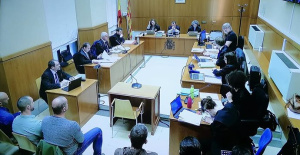 Sentences of up to 7 years for four police officers for illegal detention and injuries to a young man in Barcelona
Sentences of up to 7 years for four police officers for illegal detention and injuries to a young man in Barcelona They investigate in Jaén the death of a six-year-old boy whose mother shows signs of self-harm
They investigate in Jaén the death of a six-year-old boy whose mother shows signs of self-harm The judge orders Rubiales to appear in court once a month and ask for permission if he travels abroad
The judge orders Rubiales to appear in court once a month and ask for permission if he travels abroad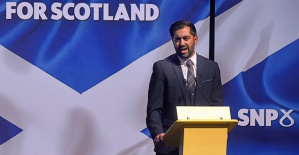 Scotland's First Minister resigns after the breakdown of the Government coalition
Scotland's First Minister resigns after the breakdown of the Government coalition How Blockchain in being used to shape the future
How Blockchain in being used to shape the future Not just BTC and ETH: Here Are Some More Interesting Coins Worth Focusing on
Not just BTC and ETH: Here Are Some More Interesting Coins Worth Focusing on They create a bank of machinery sounds to prevent breakdowns through artificial intelligence
They create a bank of machinery sounds to prevent breakdowns through artificial intelligence UPV students build a prototype of a wooden house to move to Equatorial Guinea
UPV students build a prototype of a wooden house to move to Equatorial Guinea The UA opens the call for the Impulso 2024 Awards for the best innovative business initiatives
The UA opens the call for the Impulso 2024 Awards for the best innovative business initiatives ALI, virtual assistant from Alicante, internationally recognized by the OECD
ALI, virtual assistant from Alicante, internationally recognized by the OECD A million people demonstrate in France against Macron's pension reform
A million people demonstrate in France against Macron's pension reform Russia launches several missiles against "critical infrastructure" in the city of Zaporizhia
Russia launches several missiles against "critical infrastructure" in the city of Zaporizhia A "procession" remembers the dead of the Calabria shipwreck as bodies continue to wash up on the shore
A "procession" remembers the dead of the Calabria shipwreck as bodies continue to wash up on the shore Prison sentences handed down for three prominent Hong Kong pro-democracy activists
Prison sentences handed down for three prominent Hong Kong pro-democracy activists ETH continues to leave trading platforms, Ethereum balance on exchanges lowest in 3 years
ETH continues to leave trading platforms, Ethereum balance on exchanges lowest in 3 years Investors invest $450 million in Consensys, Ethereum incubator now valued at $7 billion
Investors invest $450 million in Consensys, Ethereum incubator now valued at $7 billion Alchemy Integrates Ethereum L2 Product Starknet to Enhance Web3 Scalability at a Price 100x Lower Than L1 Fees
Alchemy Integrates Ethereum L2 Product Starknet to Enhance Web3 Scalability at a Price 100x Lower Than L1 Fees Mining Report: Bitcoin's Electricity Consumption Declines by 25% in Q1 2022
Mining Report: Bitcoin's Electricity Consumption Declines by 25% in Q1 2022 Oil-to-Bitcoin Mining Firm Crusoe Energy Systems Raised $505 Million
Oil-to-Bitcoin Mining Firm Crusoe Energy Systems Raised $505 Million Microbt reveals the latest Bitcoin mining rigs -- Machines produce up to 126 TH/s with custom 5nm chip design
Microbt reveals the latest Bitcoin mining rigs -- Machines produce up to 126 TH/s with custom 5nm chip design Bitcoin's Mining Difficulty Hits a Lifetime High, With More Than 90% of BTC Supply Issued
Bitcoin's Mining Difficulty Hits a Lifetime High, With More Than 90% of BTC Supply Issued The Biggest Movers are Near, EOS, and RUNE during Friday's Selloff
The Biggest Movers are Near, EOS, and RUNE during Friday's Selloff Global Markets Spooked by a Hawkish Fed and Covid, Stocks and Crypto Gain After Musk Buys Twitter
Global Markets Spooked by a Hawkish Fed and Covid, Stocks and Crypto Gain After Musk Buys Twitter Bitso to offset carbon emissions from the Trading Platform's ERC20, ETH, and BTC Transactions
Bitso to offset carbon emissions from the Trading Platform's ERC20, ETH, and BTC Transactions Draftkings Announces 2022 College Hoops NFT Selection for March Madness
Draftkings Announces 2022 College Hoops NFT Selection for March Madness